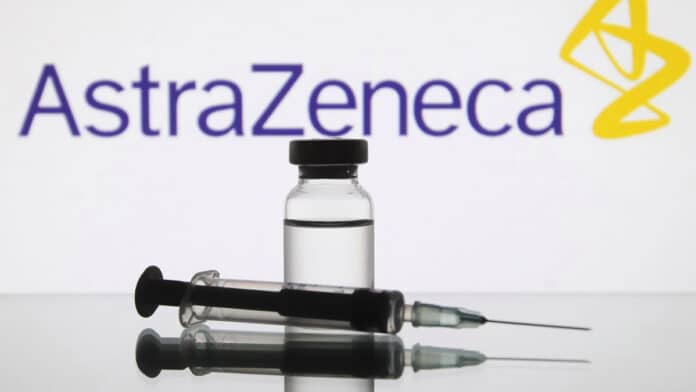Of the 18.1 million people who have had the Oxford vaccine in the UK, 30 people have developed blood clots, the medicines regulator has said.
The Medicines and Healthcare Products Regulatory Agency (MHRA) confirmed that of those 30 people, seven had died as of 24 March.
The UK regulator said there is currently no evidence to suggest a causal link between blood clots and the Oxford jab, and that the benefits continue to outweigh any risk.
Investigations are under way to determine if there is a link or if the cases are a coincidence.
The MHRA’s chief executive, Dr June Raine, said: “The benefits of COVID-19 Vaccine AstraZeneca in preventing COVID-19 infection and its complications continue to outweigh any risks and the public should continue to get their vaccine when invited to do so.”
The MHRA said on Thursday there had been “22 reports of cerebral venous sinus thrombosis (CVST) and 8 reports of other thrombosis events with low platelets”.
The figures cover 9 December 2020 to 21 March this year, when 15.8 million doses of the AstraZeneca vaccine had been administered, and around 2.2 million second doses.
Concerns have been raised about blood clots after a tiny proportion of cases arose among the tens of millions who have received the Oxford-AstraZeneca jab.
Some countries, such as Germany, have restricted its use to certain ages but the European medicines watchdog and the World Health Organisation both say it’s safe and effectiv
The British Society for Haematology has issued new guidance for doctors, amid concerns cases of blood clotting could be linked to a condition known as thrombocytopenia.
It involves patients who have low numbers of platelet cells, needed for clotting, in their blood.
The guidance states: “An expert team of our peers have recently been involved in diagnosing and managing a rare syndrome of thrombosis associated with low platelets which have been reported in a few cases.
“At the moment, any causal association with coronavirus vaccination has not been established.
“However, if you identify patients with this syndrome in proximity to coronavirus vaccination, it is very important that you complete the online yellow card – this will trigger a request from MHRA for further details.”
Professor Robin Shattock, an infections specialist and vaccinologist at Imperial College London, told Sky News: “It’s really important to recognise that currently there’s no link to having the vaccine and having these very rare blood clots.
“If you look in the general population the estimates are between two and 16 people per million may naturally get this type of blood clot so the association with vaccination may not be related to the vaccine itself.”
He said: “It’s also important to recognise that one thing the coronavirus does is it really increases your risk of developing blood clots so in terms of risk and benefits the vaccine is a safe vaccine. It really reduces your risk of having these types of really rare events which have no current proven association with the vaccine itself.”
In terms of how to convince other countries of the vaccine’s safety, he said: “It’s not really our job to persuade other countries.
“This is a very safe vaccine, it’s saving a lot of lives and we’ve seen how these types of stories have damaged vaccination campaigns in other parts of the world. The implication of that is many more people are getting COVID-19 and potentially dying.”
He said the potential for blood clots after receiving the vaccine would “continue to be monitored, but that doesn’t mean it’s something of concern that would mean people should not be coming forward to get the vaccine”.
In March, the MHRA said that anyone who has had the vaccination and who then has a headache that lasts for more than four days afterwards, or bruising beyond the site of the vaccination after a few days, should seek medical attention.
But it also added that a headache is part of one of the most common side effects of the vaccine – flu-like symptoms, although these should normally disappear within a day or two.
To date, 31,301,267 people have had a first vaccine dose in the UK and 4,948,635 have had two doses.
PLEASE SUPPORT US FOR JUST £2 A MONTH







